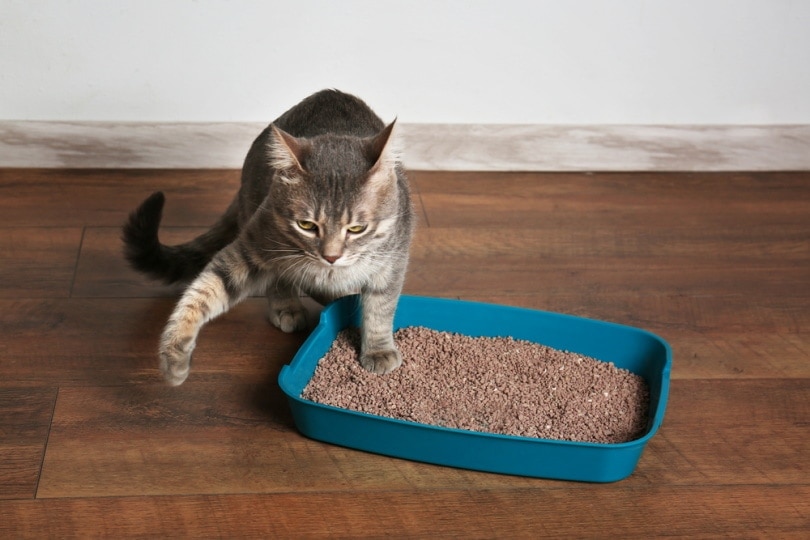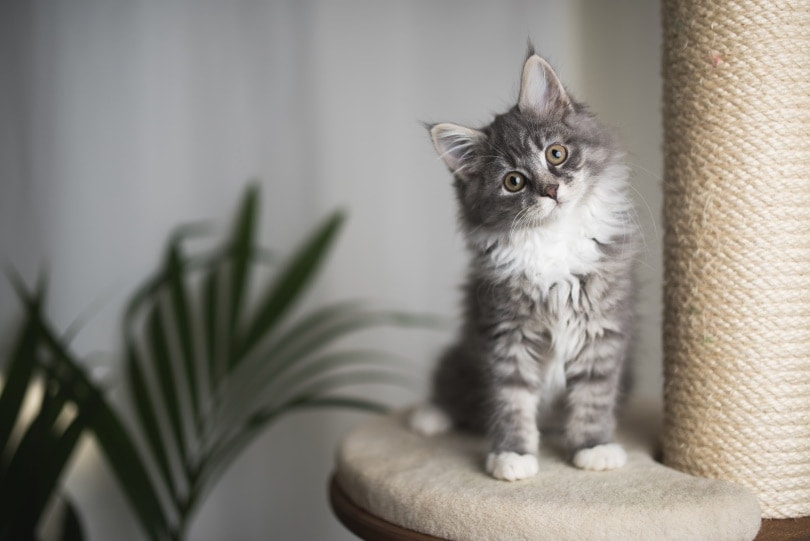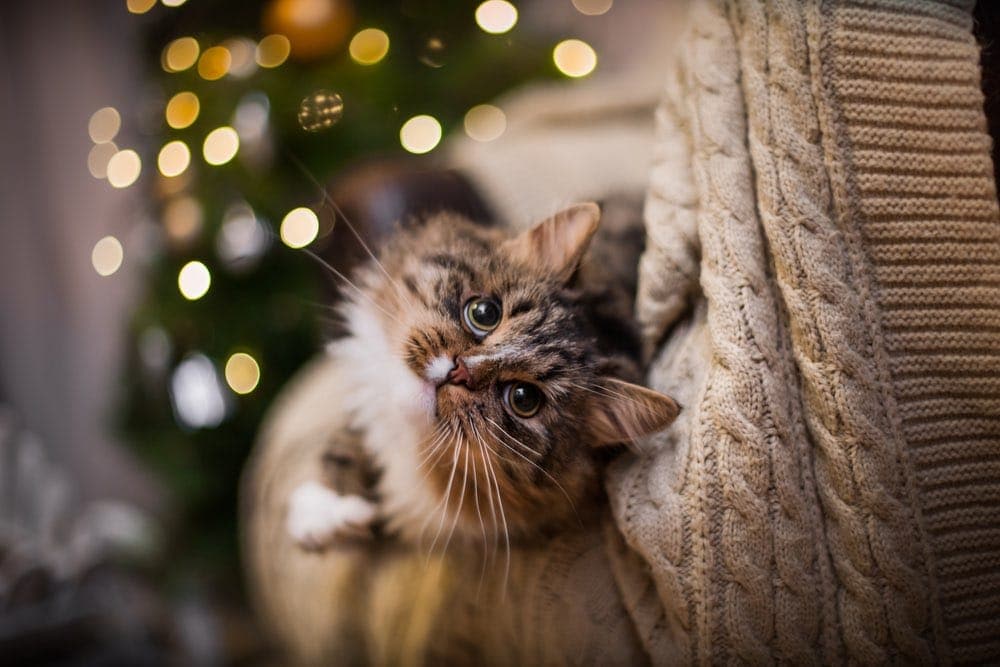11 Likely Reasons Why Your Cat Smells Bad: What to Do About It?
By Brooke Bundy
Updated on
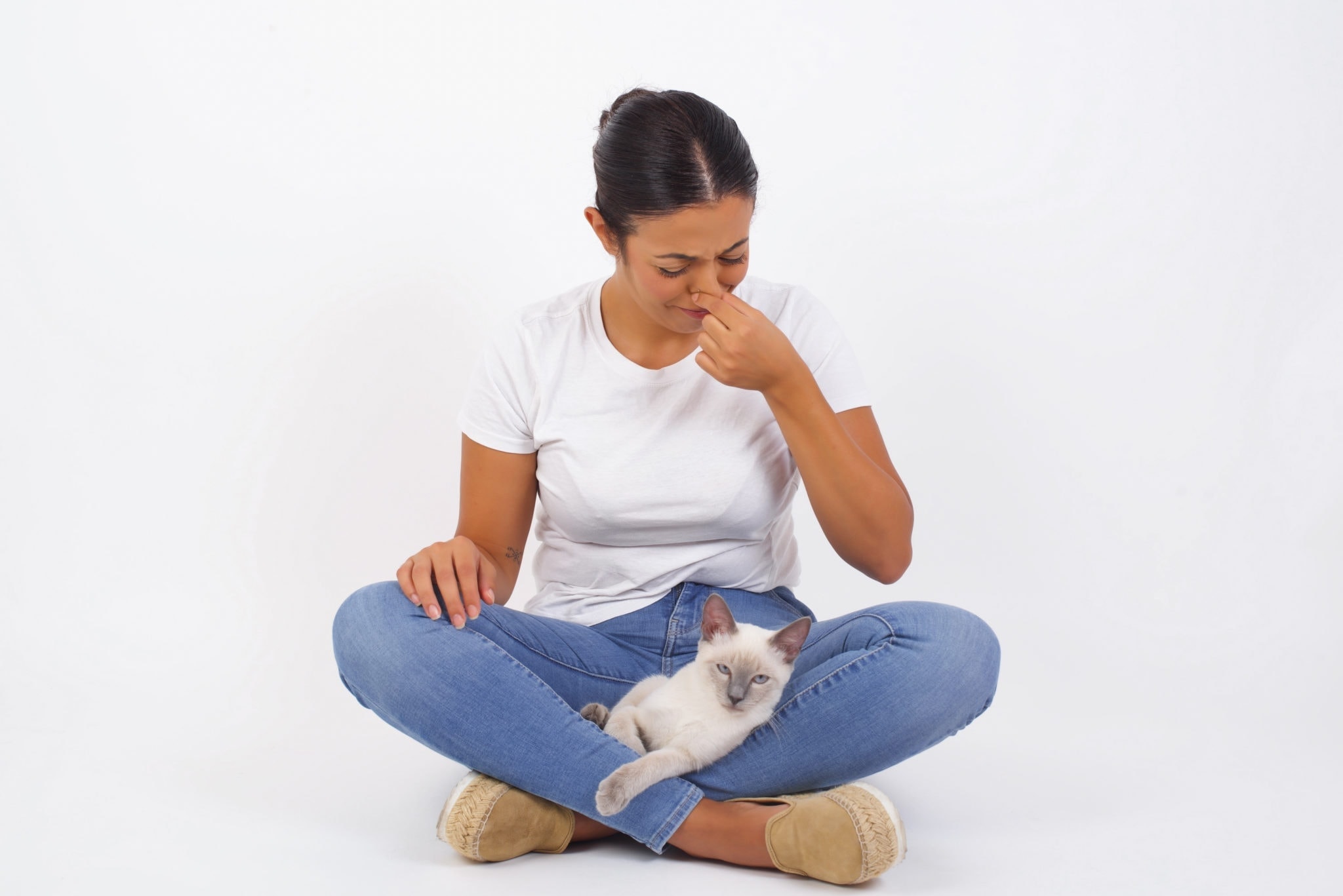
Since cats spend approximately half of their waking hours bathing themselves, you may wonder how it’s possible to ever have a stinky cat. The honest truth is that a perfectly healthy cat rarely stinks. A foul smell emanating from your feline might be a sign that something’s wrong…unless, of course, they just ate a fishy wet food or rolled in their litter. Here are 11 possible reasons why your cat smells bad, and what to do about it.
Top 11 Reasons Your Cat Smells Bad
1. Dental Disease
Decayed leftover food on your cat’s teeth and gums can contribute to foul breath and even dental disease. In fact, an estimated 70% of cats have some form of dental disease by age 4 1. Did you know that you can (and should) brush your cat’s teeth? The process is a little different, though, from what you do for yourself during your morning routine.
You’ll need to gradually work your way up to using a toothbrush on your feline. You can start by dabbing your cat’s mouth and teeth with a cotton swab dipped in tuna juice for the first few sessions to acclimate them to the motions. When it is time to brush their teeth, be sure to choose a soft toothbrush that can’t accidentally poke their gums, and always use toothpaste that’s formulated for cats. Human toothpaste often contains ingredients that are toxic to felines, and should never be used on any pets.
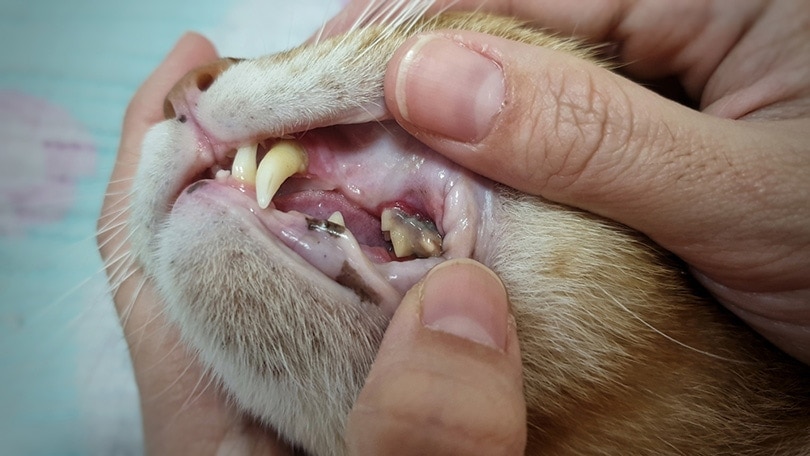
2. Diabetes
Like humans with the disease, a diabetic cat can develop what’s known as “sugar breath” or “alcohol breath.” This happens when your cat’s body isn’t producing enough insulin. Diabetes can be a serious condition, so you should take your cat to the vet as soon as possible if you suspect the disease.
3. Kidney Disease
Impaired kidney function is more likely to affect older cats. Unfortunately, by the time they begin to show symptoms, their kidneys have already lost significant function. It’s important to take your cat to the vet for evaluation if you start to notice foul breath accompanied with other symptoms such as weight loss and a dull coat.
4. UTI
Your cat’s urine might have an unusually strong and unpleasant odor if they have a UTI. Notice if the smell gets worse after they return from the litter box to help narrow down the cause.
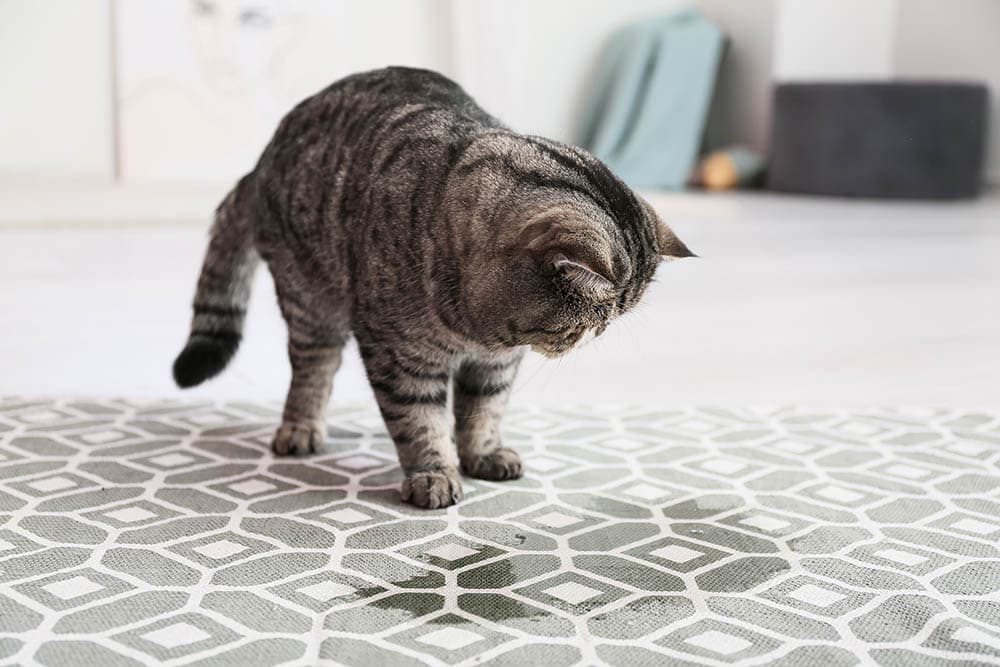
5. Untreated Skin Wounds
A fight with the neighborhood cat or the family dog might have given your cat a simple scratch that went unnoticed. It’s possible that bacteria have built up in the meantime, though, and now you have an infection on your hands that’ll need to be treated at the vet.
6. Yeast Infection
Although it’s less common in cats than dogs, your feline can develop yeast infections on their skin and ears. They’ll generally smell a bit sour and musty, like moldy bread.
7. Ear Infection
Yeast, bacteria, fungus, or ear mites can cause ear irritation. Touch your cat’s ears to see if they feel warmer than usual. Hot, red, or swollen ears are typically a sign of infection. Fortunately, ear infections are usually fairly easy to treat. However, you’ll need to take your kitty to the vet so that they can clean out their ears and determine the cause in order to prescribe the most effective medicine.
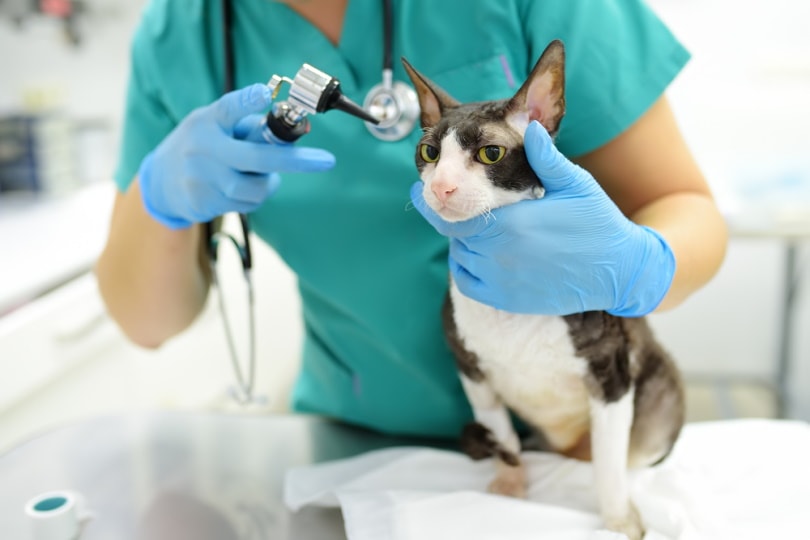
8. Anal Gland Secretion
Cats have two external anal glands that they use to mark their territory. Occasionally, those glands can become clogged and present a foul odor that smells a little like rotten fish mixed with really cheap perfume.
9. GI Upset
If you’ve recently switched your cat’s food, or they ate something unusual, your cat might be experiencing some GI upset such as diarrhea or farting.
10. Poop Stuck on Their Fur
If your cat recently had an upset stomach with diarrhea, some of the residual poop might have clung to their hind fur. This is especially a problem for long-haired cats.
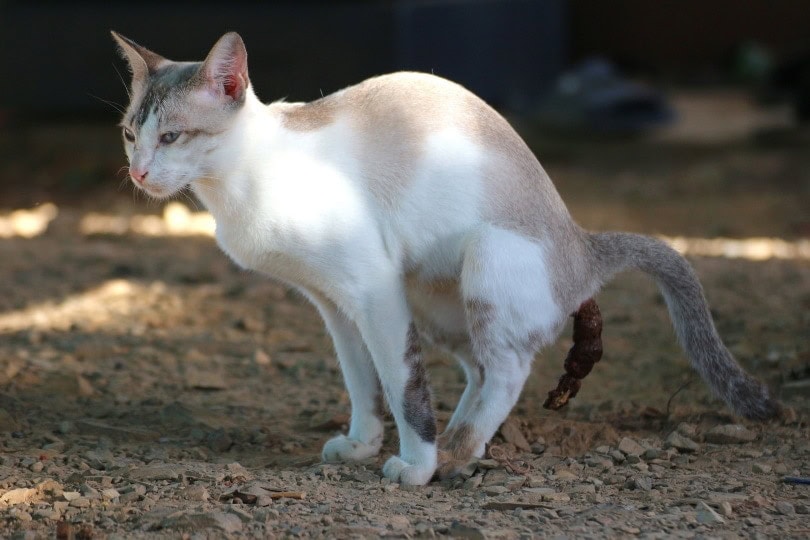
11. They’ve Rolled in Their Litter Box
Yes, it’s gross, but some cats prefer to play in the litter box instead of simply doing their business and getting out. If your cat perpetually smells like feces, chances are high that they’re rolling in their box when they need to go. Make sure to keep the litter box clean to minimize the risk of spreading pathogens around your home, especially toxoplasmosis, which starts to activate after their poop has lingered outside their body for at least a day.
What to Do About Your Stinky Cat
Once you’ve determined the type of stench, you can generally figure out your next course of action. For example, if you smell poop, check their hind quarters for dried diarrhea or feces, and change out their litter box. If you’ve recently switched their food, you might try another formula that is easier for them to digest or shift to the new recipe more gradually than you were. If you’re smelling ammonia breath, that’s more likely a sign of serious illness like kidney disease, and you should take your cat to the vet as soon as you can.
You can always try to bathe your cat as a first resort, especially if they smell like poop or you suspect the problem is external. Although cats frequently bathe themselves for hours a day, an older cat with mobility issues such as arthritis might not be able to reach all the areas of their body and need your help to keep clean.
As always, monitor your cat for any other symptoms besides the bad odor, and let the vet know if you notice anything else unusual.
In Conclusion
While it stinks to have a smelly cat, it can also be a sign of serious illness. Your first course of action should be to determine the type of stench—whether they smell like pee, poop, alcohol, or ammonia—and check their body for other signs of disorder. Knowing the overall condition of your cat can help you decide whether their next destination is the tub or the vet.
Featured Image Credit: Jihan Nafiaa Zahri, Shutterstock



